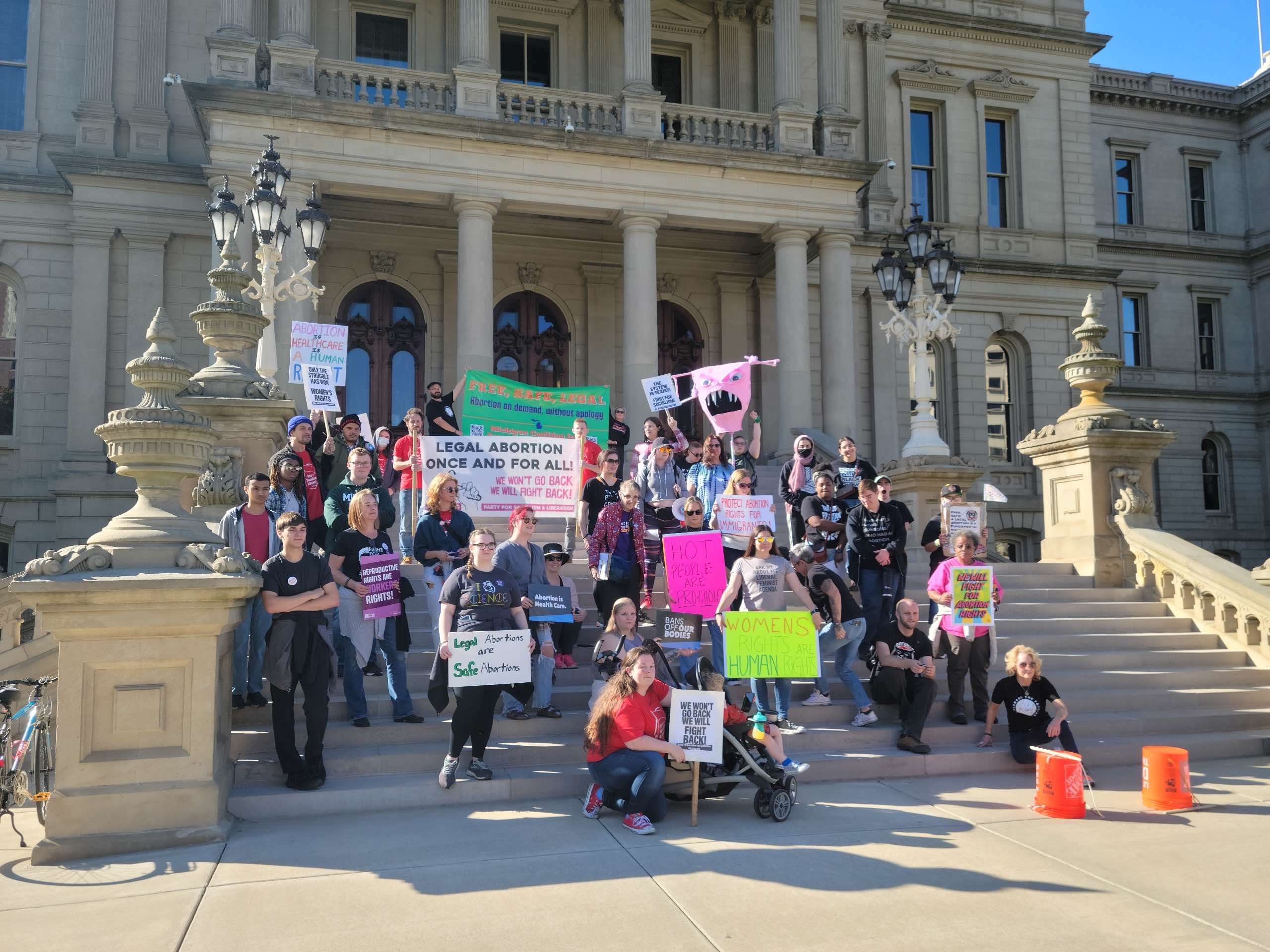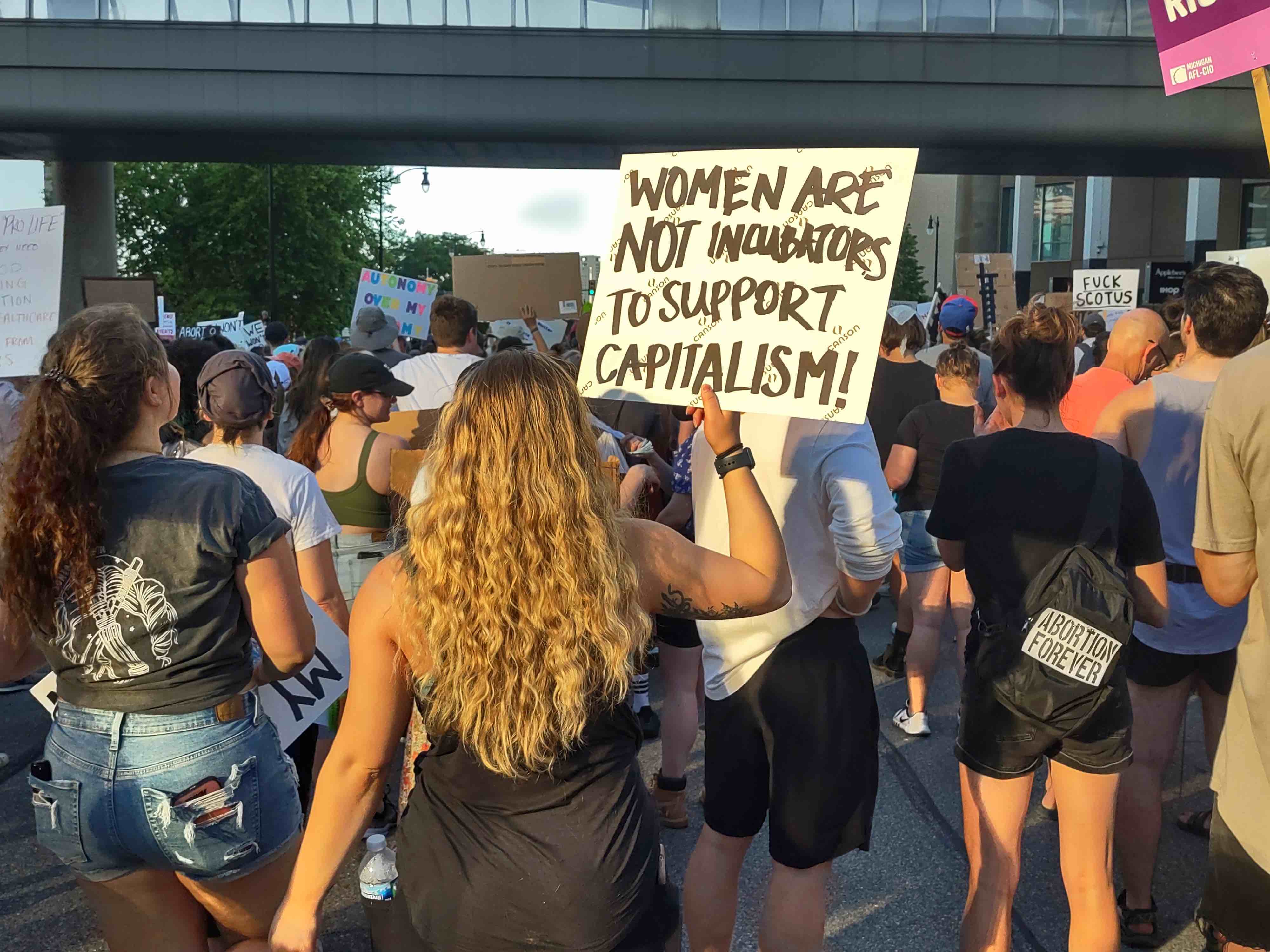Giselle Gerolami
Posted November 17, 2022

The overturning of Roe v. Wade by the Supreme Court on June 24, 2022 triggered into effect a 1931 law against abortion in Michigan, as was the case for other old anti-abortion laws in many states. Many prosecutors in the state declared that they would not prosecute, There were also lawsuits brought by the Governor, Gretchen Whitmer and by Planned Parenthood to seek the establishment of the right to abortion. Enforcement of the 1931 anti-abortion law was blocked by a permanent injunction by Judge Elizabeth Gleicher on September 7, 2022.
Not content to be at the mercy of the political leanings of politicians, Michiganders in favor of abortion proceeded with their campaign to amend the state constitution to make reproductive freedom a constitutional right. The drafters of the amendment wanted to go beyond abortion rights. The exact language of what would become Proposal 3 is as follows:
A proposal to amend the state constitution to establish new individual right to reproductive freedom, including right to make all decisions about pregnancy and abortion; allow state to regulate abortion in some cases; and forbid prosecution of individuals exercising established right This proposed constitutional amendment would:
- Establish new individual right to reproductive freedom, including right to make and carry out all decisions about pregnancy, such as prenatal care, childbirth, postpartum care, contraception, sterilization, abortion, miscarriage management, and infertility;
- Allow state to regulate abortion after fetal viability, but not prohibit if medically needed to protect a patient’s life or physical or mental health;
- Forbid state discrimination in enforcement of this right; prohibit prosecution of an individual, or a person helping a pregnant individual, for exercising rights established by this amendment;
- Invalidate state laws conflicting with this amendment.
Getting Prop 3 on the ballot was an incredible undertaking. Reproductive Freedom for All, a registered PAC, led the initiative to get the constitutional amendment on the ballot. The ACLU, Planned Parenthood, Michigan Voices and other coalition partners, led by people of color, came together and formed Reproductive Freedom for All in January 2022. They struggled initially with signature gathering but their efforts were greatly bolstered by a flood of interest that emerged after the defeat of Roe. A record 753,759 signatures were submitted to the Bureau of Elections, almost double the number of signatures required. Not all the signatures were ultimately approved but there were more than enough for the Bureau of Elections to recommend to the Board of State Canvassers that the initiative be placed on the November ballot.
A right-wing anti-abortion group called Citizens for MI Women and Children challenged the initiative based on the lack of spacing in a section of the wording which they argued made the wording nonsense. The Board of State Canvassers deadlocked along party lines which meant the proposal would not go on the ballot. Reproductive Freedom for All went to the Supreme Court of Michigan which ruled that the Board of State Canvassers place the proposal on the ballot.
From the outset, polls suggested that a majority of Michiganders supported abortion rights in general and Proposal 3 specifically. Well-funded and misleading campaigning by Citizens for MI Women and Children, anti-abortion Republicans, the Catholic Church and evangelical churches did have an impact. The most effective was the suggestion that Prop 3 would allow gender reassignment surgery for minors without parental consent. This was unfounded but played on the anti-trans mania promoted by the right. There were also ads saying that Prop 3 would allow abortions to be performed by “non-doctors”.
On the eve of the elections, it looked like the vote would be very close and could go either way but ultimately Michigan voted in favor of reproductive freedom with the yes votes coming in at 56.7% (2,477,707) vs. 43.3% (1,895,577) for the no votes.

This victory would not have been possible without the tireless organizing that was happening on the ground. When the Dobbs decision that overturned Roe was leaked in May 2022, anger erupted around the country. In Michigan, 15,000 people contacted the ACLU and volunteered to petition for the ballot initiative. The small events organized by the Michigan Coalition for Reproductive Liberation (MCRL) grew to hundreds and even thousands. Weekly demonstrations were held in front of the federal courthouse in downtown Detroit with fiery speeches. On June 24, the day of the Supreme Court decision, an angry demonstration marched through the streets of Detroit and even blocked the tunnel to Canada for a brief time.
Rallies were held in Lansing, the state capitol, including one on June 8 where the legislative session was drowned out by the voices of protesters. When Beaumont, one of the largest health groups in the state, took a cowardly position that they would respect existing law and not perform abortions unless the pregnant person’s health was threatened, MCRL organized a rally in front of a Beaumont Hospital.
Activists helped the campaign for Prop 3 by holding rallies, distributing leaflets, stickers and lawn signs in Eastern Market, and by canvassing. They joined the national Women’s March events on October 8 which took place in Washington D.C. but also around the country; the Michigan events were very much focused on Prop 3.
The most obvious effect of the constitutional amendment will be to invalidate the 1931 law but it is unlikely that other laws governing abortion in the state such as the 24-hour notice, the parental consent requirement for minors and the law limiting insurance coverage will be immediately affected. It remains to be seen what the Legislature, now in the hands of Democrats, but controlled for the past forty years by Republicans, will do to bring Michigan laws on abortion in line with the constitutional amendment.
For activists, the fight continues. Abortion is partially or completely banned in a number of states and it will be important for Michigan to be a sanctuary state, particularly for people in Ohio and Indiana. Since the defeat of Roe, the number of out-of-state patients seeking abortion has tripled.
Access to abortion in Michigan is limited in many places. 90% of abortions are performed in clinics and there are 27 clinics in the state. This is in contrast from 1982 when there were 83 clinics. 87% of Michigan counties have no clinics. In the UP (Upper Peninsula), there is only one clinic and in the northern lower peninsula, there are only two. There are significant racial disparities around access to abortion in the state as well.
In Michigan, private insurance, Affordable Care Act plans and public funding only cover abortion in cases of life endangerment. In 2021, 96.5 % of abortions were self-paid. It’s no joke that abortion is for the rich.
Half of abortions today are medical (using abortion pills at home) not surgical (performed in a clinic). Providing abortion pills will be an important tool for activists to support those seeking abortions in states where abortion has been criminalized. Networks for distributing abortion medication are in place, but these need to be extended and strengthened.
The passage of Prop 3 represents an important legal victory but the struggle for access to free services — be it abortion services, contraception, prenatal care, child care and single payer health care — continues.
